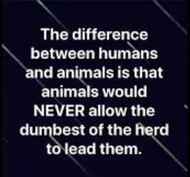
Why conservatives shouldn’t support an Indigenous Voice to Parliament
Senator Andrew Bragg stirred the possum yesterday in his article arguing that conservatives should support the 2017 declaration at Ayer’s Rock (Uluru) that there should be an Indigenous Voice to Parliament as part of Indigenous recognition in Australia’s constitution.
Bragg advances four grounds that, he argues, make this a Good Thing: it is right Aboriginal people should be consulted on laws affecting them; it builds on the centre-right’s ‘significant policy legacy in Indigenous affairs’; it supports parliamentary democracy by offering non-binding advice to parliament; and recognises the value of community and civil society.
But conservatives shouldn’t recognise an Indigenous voice to parliament, for exactly the same reasons.
First, the right to be consulted. Aboriginal people should indeed be consulted on laws and policies affecting them, just like any other group in Australian society. What’s more, they are. Over the decades since the 1967 Aboriginal recognition referendum, a vast industry of advisory councils, government agencies, activist groups and Aboriginal great and good has sprouted, matured, and overgrown. And that’s not to mention the ABC and SBS. Most of these are publicly subsidised, taxpayer-salaried, or both. Is Bragg taking a reformist axe to all these advisers, hangers-on and rent-seekers? Methinks not.
Second, 1967 was the Coalition’s most significant contribution to Indigenous affairs, followed by the 2007 Intervention. But what matters most today is that policy and tens of billions of dollars of public spending is aimed at what John Howard called ‘practical reconciliation’ – targeted and effective investment in programmes and services to ease the path to equality of opportunity for all Aboriginal Australians, but also addressing material disadvantage in health, wealth and education, let alone some appalling living conditions in remote settlements. Conservatives don’t talk about these things; we do them.
Third, parliamentary democracy. We already have an elective body to which Aboriginals can be elected. It’s called federal Parliament, and some outstanding Aboriginal Australians – including Neville Bonner, Ken Wyatt, Mick Dodson, Linda Burney and, soon, Jacinta Price – have made and are making their marks, contributing to national affairs as well as those of their own people.
Bragg also should not forget the original failed experiment in elective advisory democracy, the Aboriginal and Torres Strait Islander Commission, a body that choked itself to death on its own nepotism and corruption. The place for Aboriginal Australia to be represented is the national parliament, on the same terms as every other social and ethnic group in Australia.
Fourth, a civil society is one where all men and women are created equal regardless of race, creed, colour or social status. An Indigenous voice, and indeed the specific constitutional recognition of one race among many, would give one group that is but a small fraction of the Australian population, admittedly historically disadvantaged, a special status above all others. The law should be colour blind, and the Constitution especially so.
Senator Bragg means well. No-one doubts his good heart. But what he advocates does not enhance our parliamentary democracy: rather, it devalues it. Conservatives, especially those who walk in the tradition of Edmund Burke, cannot support radical changes to well-tried and well-loved social and political institutions unless those changes improve them. An Indigenous voice, as proposed, would not be such an improvement.












